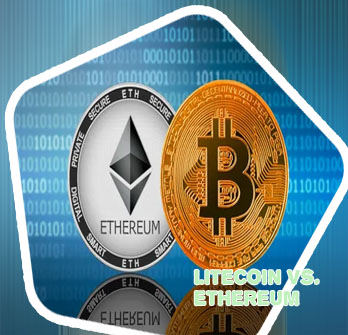Litecoin vs ethereum
When it comes to the debate between Litecoin and Ethereum, investors and cryptocurrency enthusiasts often find themselves torn between the two popular digital assets. Both cryptocurrencies have unique features and advantages that set them apart from each other. To help you navigate this comparison, we have curated a list of two informative articles that delve into the differences and similarities between Litecoin and Ethereum, offering valuable insights to aid in your decision-making process.
When it comes to the debate between Litecoin and Ethereum, investors and cryptocurrency enthusiasts often find themselves torn between the two popular digital assets. Both cryptocurrencies have unique features and advantages that set them apart from each other. To help you navigate this comparison, we have curated a list of two informative articles that delve into the differences and similarities between Litecoin and Ethereum, offering valuable insights to aid in your decision-making process.
Litecoin vs Ethereum: A Comprehensive Comparison of Two Top Cryptocurrencies

In the fast-paced world of cryptocurrency, two major players stand out: Litecoin and Ethereum. These two coins are among the top choices for investors looking to diversify their digital assets. But which one is the better investment? Let's take a closer look at the key differences between Litecoin and Ethereum to help you make an informed decision.
Litecoin, often referred to as the silver to Bitcoin's gold, is known for its faster transaction times and lower fees. It was created by Charlie Lee, a former Google engineer, with the goal of improving upon some of Bitcoin's shortcomings. On the other hand, Ethereum is more than just a digital currency â it's a platform for building decentralized applications (dApps) using smart contracts. This gives it a broader range of use cases compared to Litecoin.
One of the main differences between Litecoin and Ethereum is their consensus algorithms. Litecoin uses a proof-of-work algorithm, similar to Bitcoin, while Ethereum is in the process of transitioning to a proof-of-stake algorithm. This could potentially make Ethereum more energy-efficient and scalable in the long run.
In conclusion, both Litecoin and Ethereum have their own strengths and weaknesses. Litecoin is a solid choice for fast and low-cost transactions, while Ethereum offers a more versatile platform for developers. Ultimately, the choice between
The Pros and Cons of Investing in Litecoin vs Ethereum
When it comes to investing in cryptocurrencies, Litecoin and Ethereum are two popular options that investors often consider. Both have their own unique features and benefits, as well as drawbacks that potential investors should be aware of.
Litecoin, often referred to as the "silver to Bitcoin's gold," is known for its faster transaction times and lower fees compared to Bitcoin. This makes it a more practical option for everyday transactions. Additionally, Litecoin has a strong development team and a loyal community, which can help ensure its longevity in the market.
On the other hand, Ethereum is a decentralized platform that enables smart contracts and decentralized applications to be built and operated without any downtime, fraud, control, or interference from a third party. This makes it a versatile option with a wide range of potential applications beyond just being a digital currency.
Here are some key points to consider when deciding between investing in Litecoin and Ethereum:
- Transaction speed and fees: Litecoin offers faster transaction times and lower fees compared to Ethereum.
- Development team and community support: Both Litecoin and Ethereum have strong development teams and communities, which can impact their long-term success.
- Versatility and potential applications: Ethereum's smart contract capabilities make it a versatile option with a wide range of potential applications beyond just being a digital currency.
